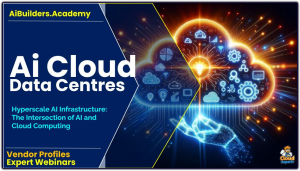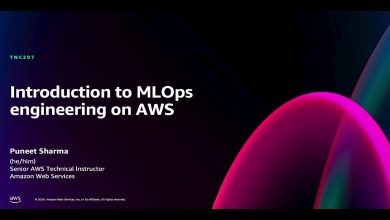Exploring the Intersection of AI and Cloud Computing
The relationship between AI and Cloud Computing is symbiotic, with each technology enhancing the capabilities of the other.
 Artificial Intelligence (AI) and Cloud Computing are two cutting-edge technologies that have revolutionized the way businesses operate and individuals interact with technology.
Artificial Intelligence (AI) and Cloud Computing are two cutting-edge technologies that have revolutionized the way businesses operate and individuals interact with technology.
The relationship between AI and Cloud Computing is symbiotic, with each technology enhancing the capabilities of the other.
In the feature video Thomas Kurian, CEO at Google Cloud, joins CNBC’s Deidre Bosa to discuss hyperscaler competition, Google’s Anthropic partnership, and more.
The Role of Cloud Computing in AI
Cloud Computing plays a crucial role in the development and deployment of AI applications. Here are some key aspects of how Cloud Computing supports AI:
- Scalability: Cloud platforms provide the necessary infrastructure and resources to scale AI applications based on demand. This scalability ensures that AI algorithms can process large datasets efficiently.
- Storage: Cloud storage solutions enable AI systems to store and access vast amounts of data required for training machine learning models. This data can be easily accessed and shared across different AI applications.
- Compute Power: Cloud providers offer high-performance computing resources that accelerate AI model training and inference tasks. This computational power is essential for processing complex AI algorithms in a timely manner.
- Cost-Effectiveness: Cloud services allow organizations to leverage AI capabilities without significant upfront investments in hardware infrastructure. This cost-effective model enables businesses of all sizes to adopt AI technologies.
The Impact of AI on Cloud Computing
AI technologies, in turn, have transformed the landscape of Cloud Computing by introducing intelligent capabilities that optimize resource utilization and enhance user experiences:
- Automation: AI algorithms can automate various tasks in Cloud Computing, such as resource provisioning, workload optimization, and security management. This automation streamlines operations and improves efficiency.
- Predictive Analytics: AI-powered analytics tools can analyze Cloud usage patterns and predict future resource requirements. By leveraging predictive analytics, Cloud providers can optimize resource allocation and enhance performance.
- Enhanced Security: AI-driven security solutions can detect and mitigate potential threats in real-time, bolstering the overall security posture of Cloud environments. These intelligent security measures protect sensitive data and ensure compliance with regulations.
- Personalization: AI algorithms enable Cloud services to deliver personalized experiences to users based on their preferences and behavior. This personalization enhances user satisfaction and engagement with Cloud applications.
In conclusion, the relationship between AI and Cloud Computing is characterized by mutual reinforcement and innovation. As AI continues to evolve, its integration with Cloud Computing will drive advancements in various industries and pave the way for the next generation of intelligent technologies.



